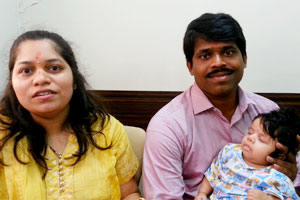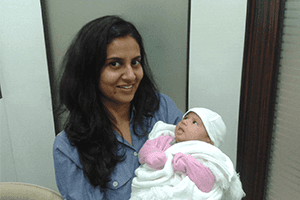Most of the women have probably experienced it: menstrual cramps, signaling the start of a fresh period. But for some women, these cramps are extremely painful, preventing them from even getting out of bed and doing their daily routine. While cramps are a way of life for most women, normal periods rarely cause debilitating cramps–but a medical condition called endometriosis, when the endometrial tissue grows outside the uterus, can. Endometriosis is still a fairly “unknown” illness, despite the fact that it is one of the most common gynecological problems. It often takes a long time before it is diagnosed. Some women who have endometriosis experience severe pain which affects their quality of life, and sometimes even their fertility. Extremely painful periods may be a sign of endometriosis.
Endometriosis is a female health disorder that occurs when cells from the lining of the womb (uterus) grow in other areas of the body. This can lead to pain, irregular bleeding, and problems getting pregnant
So how do you tell the difference between a normal period or endometriosis?
1. Severity of cramps. That burning, throbbing sensation below your stomach would make anyone miserable, but normal cramps rarely cause extreme or debilitating pain. If they do, it may be a sign of endometriosis, which is often characterized by debilitating cramps. For some women, they can’t even get out of bed because the pain is so severe–or they begin puking from the pain’s severity. If you have mild cramps that are easily alleviated by pain medication, you probably don’t have this condition, but if your cramps severely impact your ability to live your life, then this may warrant a doctor’s visit.
2. Heavy menstrual periods. While heavy menstrual periods don’t solely indicate endometroisis, it’s often a symptom of this condition–think bleeding so thick that not even super plus sanitary napkins can stop it for more than an hour. The amount a woman bleeds can vary, but when it is unusually heavy, it warrants a doctor’s visit, as it often indicates a serious health problem.
3. Painful bowel movements. We all have digestive problems from time to time, but if you notice you develop painful bowel movements during your menstrual period, you may have endometriosis. Some women may also experience painful urination during their period, but make sure to rule out any underlying conditions that can also cause painful urination, such as a urinary tract infection.
What to Do If You Think, You Have Endometroisis?
If you suspect you don’t have normal periods–that you may in fact have endometriosis–then it’s time to take action. Visit your local doctor and discuss with him or her about your symptoms. He may recommend a number of investigations to check if it is endometriosis, such as an ultrasound or magnetic resonance imaging (MRI). If the tests determine you have this condition, treatments can help ease the symptoms, though conventional medicine, unfortunately cannot cure it. Homeopathy has been the only real cure for last 200 years, but unfortunately, due to various reasons, Homeopathic medicines have not been propogated in a right way.
Welling Homeopathy is the only clinic which specializes in offering complete cure for endometriosis and the other causes that lead to infertility through Homeopathy.







